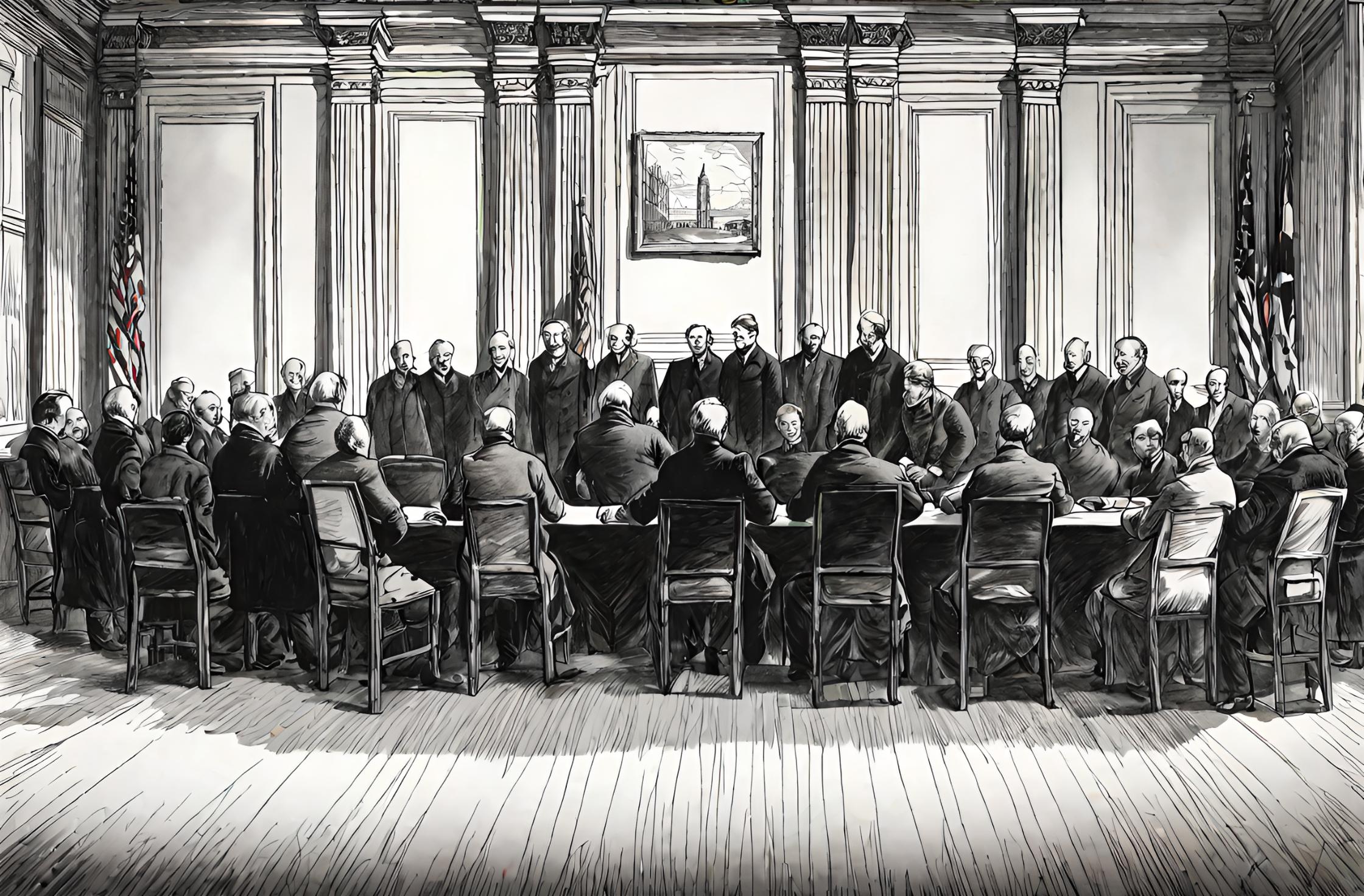Flashback to November 21
World History

Many key moments in recent history have shaped the world as we see it today, and the signing of the Treaty of Versailles stands out as one of them. Taking place on June 28, 1919, the treaty marked the official end of World War I. The document was signed at the Palace of Versailles in France, promising the cessation of a war that had ravaged nations and led to millions of casualties worldwide.
World War I, also known frequently as The Great War by historians and academics, spanned four years, from 1914 to 1918. Engaging various countries in an unprecedented conflict scale, it called for an equally potent resolution. And thus, the Treaty of Versailles was born.
The delegates of more than thirty nations convened to negotiate peace and reconcile post-war conditions at the Paris Peace Conference. Chief among them were ‘The Big Four’, an alliance of powers that included the United States, United Kingdom, France, and Italy. Germany, a crucial player in the war, was not present for the negotiations; instead, the ‘Big Four’ made all the critical decisions related to Germany’s future and delivered them as accomplished facts.
High-quality primary documentation records that the Treaty of Versailles incorporated stipulations that demanded Germany and its allies accept full responsibility for causing the war. As a severe repercussion, the Central Powers had to comply with hefty reparations. This part of the treaty, also known as the War Guilt clause, significantly altered the geopolitical landscape of Europe and seeded the factors leading to subsequent conflicts in the 20th century.
The Treaty of Versailles introduced numerous territorial changes as well, often stressing the importance of self-determination in national boundaries. This principle affected several countries in Central and Eastern Europe, leading to significant territorial losses for Germany and Austria-Hungary, and new nations were born, such as Czechoslovakia and Yugoslavia.
While the signing of the Treaty of Versailles engendered relief initially, promising a stride towards lasting peace and stability, its impact had unforeseen long-term implications. The treaty left Germany grappling with socio-economic challenges, courtesy of the harsh reparations and territorial shifts. These conditions facilitated an atmosphere of hostility and resentment, pivotal factors in Germany’s role in initiating World War II.
A thorough exploration of global relations preceding World War II must not overlook discussions on the Treaty of Versailles. It offers crucial insights into the interplay between international relations and warfare, and the consequences when peace settlements fail to appease all parties involved.
Undeniably, the signing and execution of the Treaty of Versailles introduced significant geopolitical changes, influencing landmark events in the 20th-century world history. Its influence is a testament to the aftermath of war and its far-reaching implications, as Nations struggle to balance peace, power, and national interests.
Exploring the intricacies of the Treaty of Versailles provides a deeper understanding of the world’s modern political and historical landscape. Its legacy continues to be a topic of interest for scholars and those interested in historical geopolitics. Grasping the details of this treaty allows for more significant insights into the causes, developments, and outcomes of many struggles that have marked modern global history, serving as a grim reminder of the price nations can pay in the pursuit of supremacy.
We strive for accuracy. If you see something that doesn't look right, click here to contact us!
Sponsored Content

The island of Dominica…
On November 21, 2004,…

In the India-Bangladesh border…
A powerful 6.1 magnitude…

Georgius Agricola mineralogist, dies…
Renowned mineralogist Georgius Agricola…

Pierre Amine Gemayel, Lebanon’s…
"Lebanon's Minister of Industry,…

German Field Marshal Gerd…
Honoring the historical event…

